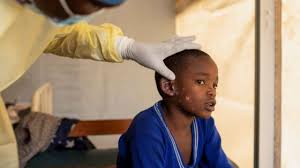On August 20, 2024, the government of Delhi issued directives to three major hospitals to set up isolation rooms in anticipation of possible Mpox cases. In light of the disease’s considerable spread throughout Africa and other regions, the World Health Organization (WHO) designated mumps as a Public Health Emergency of International Concern (PHEIC), prompting this action.
Three hospitals—Lok Nayak Jai Prakash (LNJP) Hospital, Guru Teg Bahadur (GTB) Hospital, and Baba Saheb Ambedkar Hospital—have been designated by the Delhi government for this effort. The main building, LNJP Hospital, will have 20 isolation rooms, 10 of which will be used for confirmed cases of mpox and the remaining 10 for suspected cases. There would be ten rooms at each of the GTB and Baba Saheb Ambedkar Hospitals, divided between proven and suspected cases.
The health experts stressed that there are currently no known cases of mpox in Delhi, despite these precautions. They gave the people confidence that everything is under control and that the government is ready for any events. The purpose of establishing these isolation rooms is to guarantee that situations can be handled quickly and skillfully in the event that they occur.
The number of instances of mpox, formerly known as monkeypox, has alarmingly increased worldwide. Since 2022, there have been 208 recorded Mpox deaths and 99,176 reported cases in 116 countries, according to WHO data. The disease has been especially common in the Democratic Republic of the Congo, where cases worldwide spiked last year. More than 15,600 cases and 537 deaths have been reported so far this year, exceeding last year’s total number of cases.
Since 2022, there have been 30 instances of mpox reported in India; the most recent case was discovered in March 2024. The establishment of isolation facilities by the Delhi government is a preemptive action aimed at controlling any possible outbreak and safeguarding public health.
The construction of these isolation rooms is a component of a larger plan to improve the healthcare system’s preparedness to address new health risks. The government of Delhi intends to stop the disease’s spread and guarantee that the medical system can effectively manage any instances by setting up specific facilities for suspected and confirmed cases of Mpox.
In conclusion, even though there haven’t been any Mpox cases in Delhi yet, the government’s move to establish isolation rooms shows that it is committed to being ready for anything that can happen and that it is taking a careful and proactive approach to handling public health risks.
SOURCE :
THE PRINT








